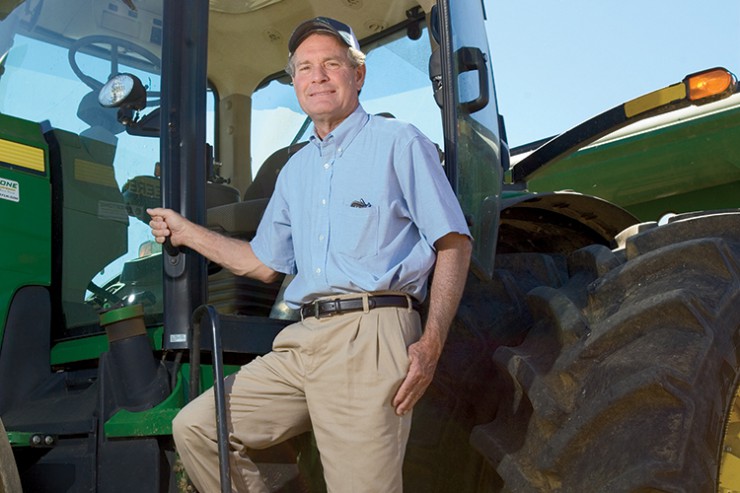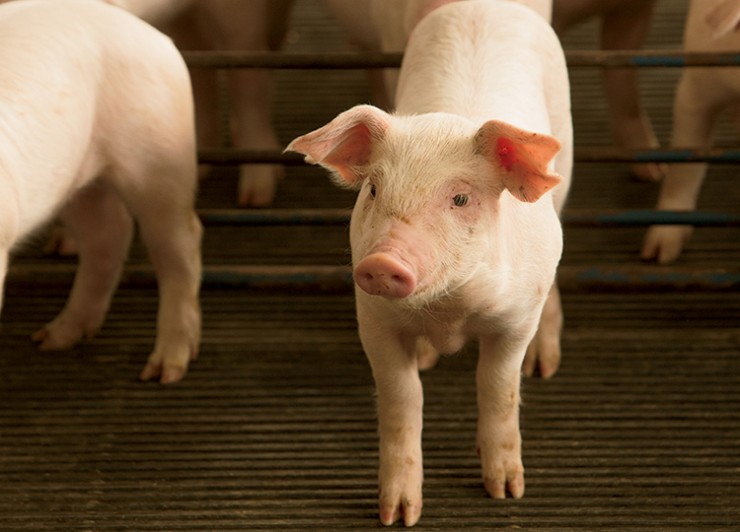Home > Kentucky > Kentucky Crops & Livestock > The Business of Farming in Kentucky
The Business of Farming in Kentucky

Ray Allan Mackey of Meadow View Farms in Elizabethtown, has been a part of the farming industry for more than 30 years. Through diversification, he preserves the family farm for the future.
The Swisher Sweets/Sunbelt Expo Southeastern Farmer of the Year for Kentucky, Mackey says part of successful farming is utilizing diversification as a part of the business model.
“We’re a family farm, but I hope we’re operating somewhat like a business,” he says.
Farmers, he says, do a little of everything and will specialize in the areas they enjoy or do well. For him, that’s meant raising cattle, hogs, tobacco and row crops and producing grain on his 4,500-acre farm.
He sells his feeder calves to Midwest feedlots, hogs to Tyson Foods, corn and soybeans to river terminals and processors to the west or poultry operations in the south. He grows burley tobacco for contract sales to Philip Morris USA.
“In my beginnings, I thought to remain profitable or to leave room for other generations to farm, I needed something going on all the time,” Mackey says. “My model is to have something to do with production going on as much as possible, nearly every day if I can.”
The farm gets a group of approximately 500 pigs every month in a wean-to-finish operation, continually working them through the six-month process for each group.
Managing Risk
Christy Cassady, coordinator for the Center for Crop Diversification at the University of Kentucky, says diversification is the best farming model.
“Diversification allows a farmer to spread the risk across multiple crops or enterprises,” Cassady says. “If one crop has a bad year, there are others to fall back on.”
There can be a stretch of many years where one of the enterprises operates at cost of production, not leaving money for new equipment or reducing debt, Mackey says.
He adds that some enterprises have to come in above operating costs to stay in business.
Along with managing the farming operation, Mackey remains involved in the community as president of the Hardin County Farm Bureau as well as being involved in the Kentucky Corn Growers Association, the Kentucky Cattlemen’s and Pork Producers associations, and his local church.
He makes trips to Washington, D.C., and Frankfort to speak on legislation important to farmers.
“I think it’s really important that active, invested farmers serve in those areas,” Mackey says. Farmers know best about how to represent farming because they have working knowledge of what’s important in agriculture, he says.

The Next Generation
For the future of his farm, Mackey hopes to see new farmers come along from his family, his sons and nephews.
Mackey’s son, Stuart, is seeking work outside the farm while helping with the accounting aspects of the farm. His son, Grant, currently works with Pioneer Seed in Tennessee on the research end of farming.
While Mackey never pushed either son into farming, Grant says his goal is to come back to farm someday, but he wants to take advantage of his current opportunity with Pioneer Seed.
With the buildings and equipment Mackey’s provided for the farm and the productivity and diversity of the farm, he’s left it in great shape for those who come after him, Grant says.
“I think he’s made it easier on the next generation,” he says.




